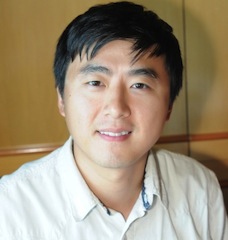Systems Seminar - CSE
Marrying Generational GC and Region Techniques for High-Throughput, Low-Latency Big Data Memory Management

Most "Big Data" systems are written in managed languages such as Java, C#, or Scala. These systems suffer from severe memory problems due to massive volumes of objects created to process input data. Allocating and deallocating a sea of data objects puts a severe strain on existing garbage collectors (GC), leading to high memory management overhead and reduced performance. We have developed a series of techniques at UC Irvine to
tackle this problem. In this talk, I will first talk about Facade, a compiler and runtime system that can statically bounds the number of data objects created in the heap. Next, I will talk about our recent work on
Yak, a new hybrid garbage collector that splits the managed heap into a control and a data space, and uses a generational GC and a region-based technique to manage them, respectively.
Guoqing (Harry) Xu is an assistant professor at UC Irvine. He is broadly interested in programming languages and (distributed, operating, and runtime) systems. His recent interests center on (1) how to exploit language/compiler techniques to build scalable Big Data systems and (2) how to build Big Data systems to parallelize and scale sophisticated program analyses. He publishes broadly in PL, systems, and SE conferences such as SOSP, ASPLOS, PLDI, and OOPSLA and is an author of several papers awarded or nominated for distinguished paper awards.
 MENU
MENU 
